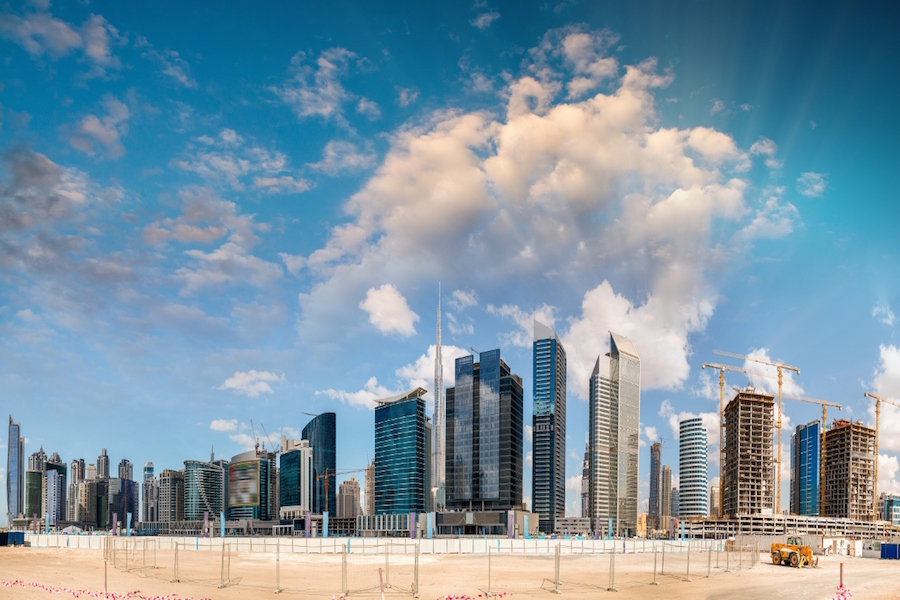
This new year is also the effectivity of VAT in the whole UAE yet the Dubai real estate sector shows varying outcome to this new regime. Residential properties, in general, is either exempt or zero-rated while any commercial real estate transactions will get an extra 5 percent VAT, producing domino-effect on the Dubai residential properties.
What will be taxed?
-
Any commercial plots in the UAE, whether rented out or sold, such as retail spaces, offices and even paid car parking.
-
If the landlord and tenant are both non-residents, they will not escape the 5 percent VAT for commercial property. The landlord has to register for VAT if the property is in the UAE.
-
Rents payable under commercial rental contracts will also attract VAT. These are rental contracts effective last year in respect of rents that relate to 2018.
-
Lease incentives such as free office fit-outs.
-
Any properties that are not fixed to the ground or movable. E.g. Mobile homes
-
Residential properties that are rented on a short-term basis to non-residents. If the tenancy contract is less six months and the person living there does not have an Emirates ID. The leased property will consider commercial from a VAT perspective.
-
Hotels, serviced apartments, B&B, and inns, also come under VAT.
VAT: Zero-rating and Exemptions
Residential and commercial properties have varying attention from implementation of the VAT in the country. It means anything that is designed for living in, such as your own house, nursing homes, student and employee accommodation, are considered residential and VAT exempt.

However, the zero-rated supply can also apply to residential property. The “first time” supply of residential properties within three years of completion, for both rental or purchase will be zero-rated in the UAE. Also, the first supply of charity-related buildings, and properties converted from commercial to residential, as well as UAE nationals building their own home are zero-rated from the VAT.
Zero-rated VAT goes directly significant for the developers, as they can reclaim VAT related to development costs including materials purchases and professional (engineers, architects, and the likes) services. Developers produce no income during the construction period, but zero-rated supply, unlike those with exempt supply, can register for VAT and reclaim input VAT. Succeeding supplies of residential properties are exempted from VAT as well as the land without infrastructure, that’s why developers cannot register those units for VAT.
A developer can still able to register both exempt residential and standard-rated commercial property, the only concern is when calculating which VAT is recoverable and which is not.
VAT Reclaim: To Register or Not
Developers can reclaim VAT from development costs, the refund claim must be done within 20 days or developers can ask to extend the approval of the application. Once approved, the refund will receive within five days.
Developers with annual revenue of more than Dhs 375,000 have to register for VAT but for smaller service providers with just over half of that, it could be a matter of choice for them whether to register or not.
VAT: Indirect Effect on the Market
VAT will not seriously affect real estate, it will not directly affect the sale or rental price of any residential properties but it will have an indirect effect on the market as a whole. The new tax will be calculated on the top of real estate agencies and agents services particularly transactions about renting, buying, manage the property, or sales agreement regardless of whether the property is residential or commercial.
However, if the residential property is being sold or lease to the secondary market, it will be free from the VAT and thus owners are unable to recover VAT on their purchases such as maintenance costs related to the sales or rents. The landlords are most likely to absorb VAT as they cannot just pass the cost of maintaining a property to the purchasers and tenants.
VAT: For Ejari and Similar Services
All fees imposed by the government as a public authority having a sovereign capacity will not be taxed. Also, VAT will not be applicable to activities including registering property on the land department’s registry or rental contract on Ejari and DLD (Dubai Land Department) registration fees. However, if payments are created from commercial activity conducted by the government, it will attract 5 percent VAT.